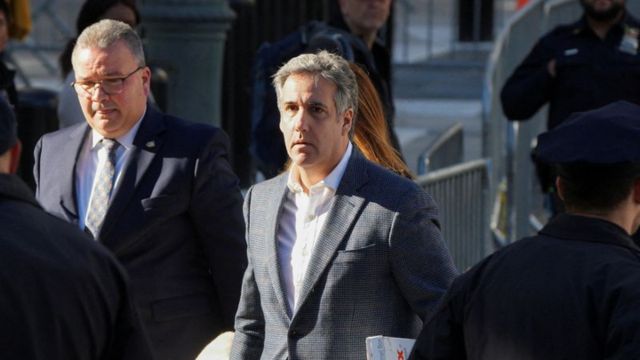Michael Cohen Acknowledges Unintentional Use of AI-Generated Fake Cases in Legal Filings
Former President Trump’s former fixer and attorney, Michael Cohen, acknowledged in a document that was made public on Friday that he unintentionally sent his attorney with fictitious court case citations produced by artificial intelligence in conjunction with a request to terminate his supervised release early.
Earlier this month, U.S. District Judge Jesse M. Furman questioned the citations, stating, “In the letter brief, Mr. Cohen asserts that, “[a]s recently as 2022, there have been District Court decisions, affirmed by the Second Circuit Court, granting early termination of supervised release.”,”
Furman went on to say, “As far as the Court can tell, none of these cases exist.”

Cohen said in his sworn declaration, which was made public on Friday, that he used Google Bard, an AI tool that he believed to be a “supercharged” search engine, to locate the fake citations.
“As a non-lawyer, I have not kept up with emerging trends (and related risks) in legal technology and did not realize that Google Bard was a generative text service that, like Chat-GPT, could show citations and descriptions that looked real but were not,” said Cohen. “Instead, I understood it to be a super-charged search engine and had repeatedly used it in other contexts to (successfully) find accurate information online.”
Cohen spent more than a year in jail before being placed on supervised release in 2018 after entering a guilty plea to tax evasion, campaign finance violations, and lying to Congress. In addition, he lost his legal license.
“It did not occur to me then and remains surprising to me now—that Mr. Schwartz would drop the cases into his submission wholesale without even confirming that they existed,” he stated, referring to his attorney, David Schwartz. “I deeply regret any problems Mr. Schwartz’s filing may have caused.”

The purported error by Schwartz, according to him, was “a product of inadvertence, not any intent to deceive.”
“Mr. Cohen engaged in no misconduct and should not suffer any collateral damage from Mr. Schwartz’s misstep,” Cohen’s attorney, E. Danya Perry, told the judge after learning the citations were fraudulent.
Two attorneys were fined $5,000 in a separate instance earlier this month for using AI-generated fictitious cases.
In an official statement, Perry told Fox News Digital, “These filings—and the fact that he was willing to unseal them—show that Mr. Cohen did absolutely nothing wrong.” As he had every right to, he trusted his attorney. Regretfully, it seems that his attorney genuinely mishandled the brief he wrote and submitted by failing to double-check the citations.”
This article was assisted by the Associated Press.
